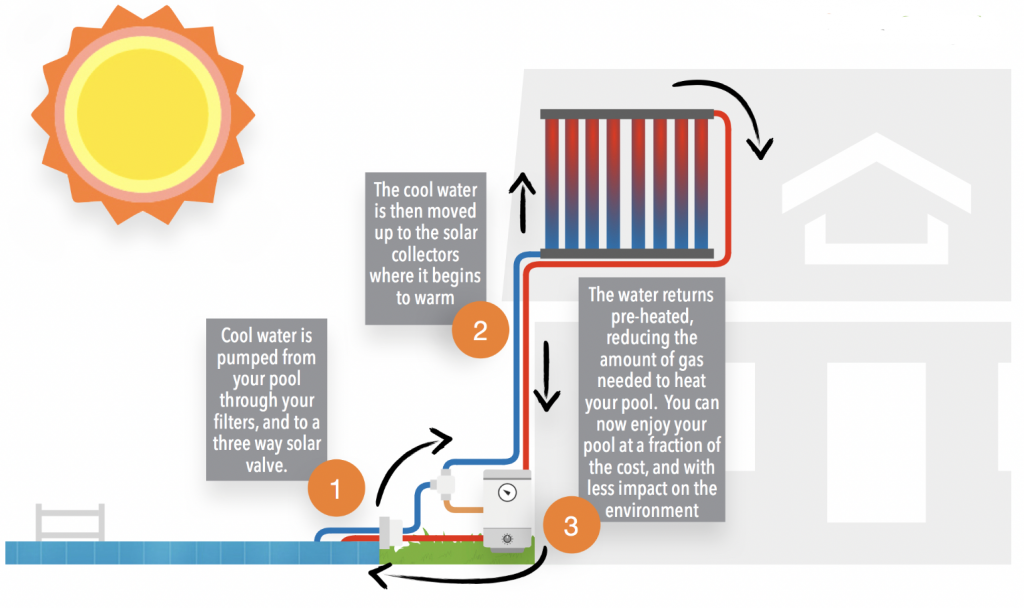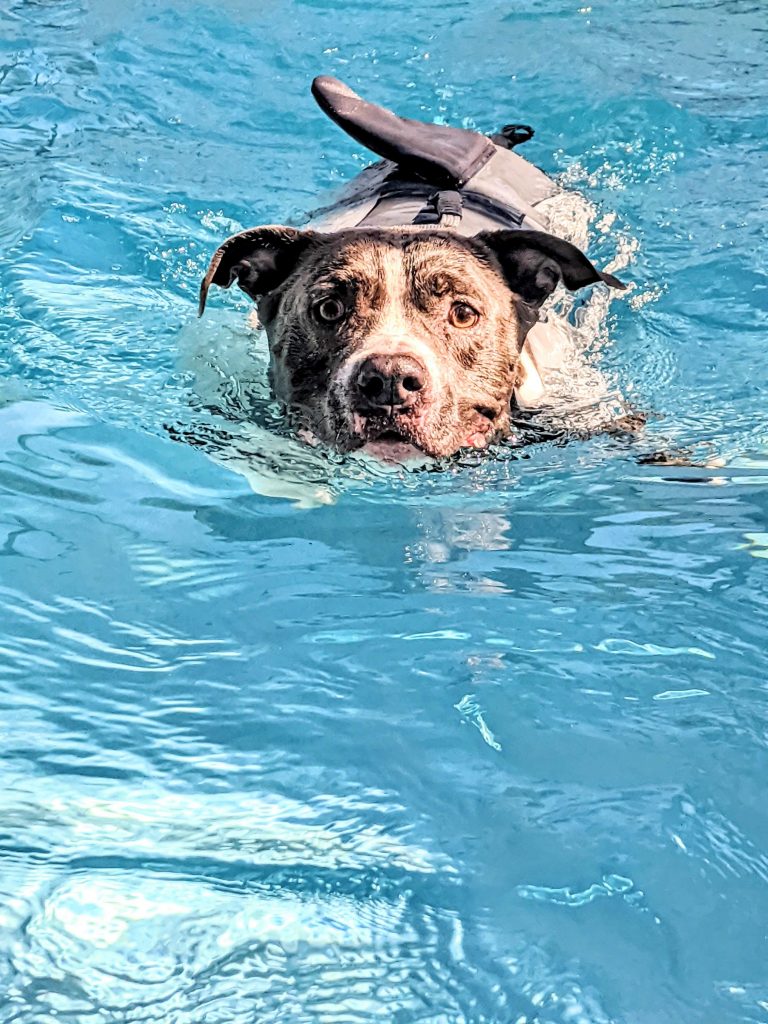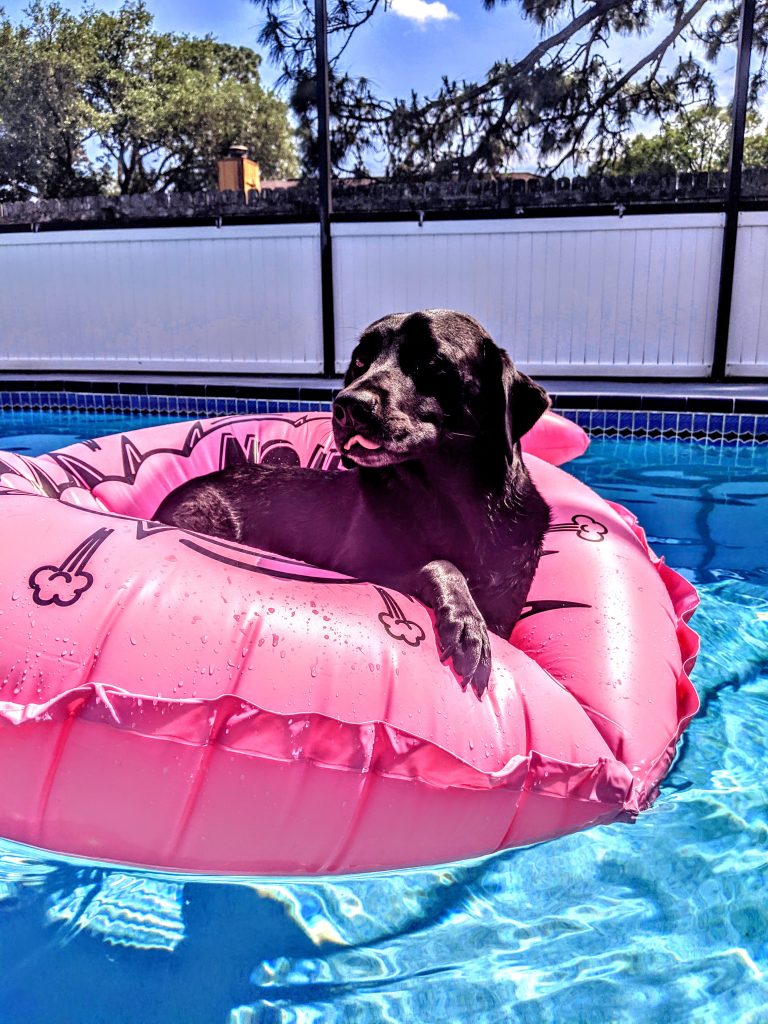- 321-749-4419
- 330 Stan Drive Suite 101 Melbourne Fl 32904
- Info@SolarAuthorityPro.com
Menu
8am-6pm Monday -Sunday
A solar pool heater has a lifespan of roughly 20 years
Unlike gas and electric heaters, which should be serviced by a technician every year, a solar heater requires very little servicing. Meaning less cost and less hassle for you. Also, since Solar Authority does maintenance and service on the solar pool systems we install, we have you covered.
Solar pool heaters generate and utilize energy that is clean, renewable and reliable. It will help eliminate carbon dioxide and nitrogen oxides emissions, a major contributor to smog and global climate change. Using solar energy to heat your pool instead of fossil fuels can stop three to 10 tons of carbon dioxide– about the same amount produced by operating your car for one year!– from entering the atmosphere each season.

Solar pool heating is a specialized area of solar energy that utilizes purpose-built solar panels to absorb heat from solar radiation.
Solar pool heating panels are black in color and made from polymer material, the blend of which is proprietary to each manufacturer. If you drive around virtually any community in Florida, you will start to notice many homes with large black panels on the roof. Those are solar pool heating systems.
Solar heat for pools is extremely popular on the Space Coast of Florida. In fact, the Space Coast is one the top markets in the country for this type of solar panel.
There is no electricity involved. Pool water actually flows through the solar collectors, absorbing heat along the way. These systems use your existing pool pump and works with virtually any existing pool equipment.
Solar Panels are excluded by law from the assess value of residential property, so solar panels will not have an effect of residential property taxes.
HB 277, which was added during the 2013 legislative session – added Section 193.624, Florida Statutes to read:
“ Florida provides a property tax exemption for residential photovoltaic systems, wind energy systems, solar water heaters, and geothermal heat pumps installed on or after January 1, 2013. For the purpose of assessing property taxes for a home, an increase in the just value of the property attributable to the installation of this equipment should be ignored. The exemption applies to the following types of equipment used as part of a solar, wind or geothermal system:
* Solar energy collectors, photovoltaic modules, and inverters.
* Storage tanks and other storage systems, excluding swimming pools used as storage tanks.
* Rockbeds.
* Thermostats and other control devices.
* Heat exchange devices.
* Pumps and fans.
* Roof ponds.
* Freestanding thermal containers.
* Pipes, ducts, refrigerant handling systems, and other equipment used to interconnect such systems; however, such equipment does not include conventional backup systems of any type
* Windmills and wind turbines.
* Wind-driven generators.
* Power conditioning and storage devices that use wind energy to generate electricity or mechanical forms of energy.
* Pipes and other equipment used to transmit hot geothermal water to a dwelling or structure from a geothermal deposit.
This exemption applies to assessments beginning January 1, 2014, and for equipment installed on or after January 1, 2013.”
Although there is no property tax exclusion law that applies to commercial property, common practice is that solar panels are not included by county property appraisers in the assessment process.
Solar pool heating, solar electric, and solar water heating systems with all associated components are exempt from sales tax in the state of Florida.
There will be a small amount of variation based on size, model, and water volume. However, a generic empty panel will weigh about 7kg empty and 27kg when full. Overall, weight should be a non-issue when considering to install solar heating panels.
Solar electric panels are considerably inefficient when compared to solar pool heating panels. In addition, the cost and complexity of setting up this system is usually problematic. We suggest sticking with the best panel for the job – which is the solar pool heating panels.
When nighttime falls, your solar panels will become dormant. This means they cannot heat your pool, however normally pool pumps do not operate at night anyway – so no water can be pumped into the panels regardless. This is not a problem though, as during the day there is plenty of sunlight in Florida to adequately heat your pool well into the nighttime hours. Some heat will be lost overnight, however it is easily regained the following day. During cloudy weather, solar heating panels may still collect enough sunlight to heat your pool. As long as solar panel temperature remains higher than water temp – there will be heat transferred to your pool. The speed of the heat transfer is directly dictated by how much solar energy is available at any given time, so there will be an ebb and flow. Moreover, solar panels can actually be used to reduce pool temperatures at night which is often times desirable when temperatures soar on the Space Coast.
There are no federal tax incentives for solar pool heaters. This is mainly due to them being viewed as a luxury and not a necessity. However, Florida legislature views the benefits of solar pool heating as a preferable alternative to traditional fossil fuel or electric heating methods. This has caused them to provide a sales tax exemption for solar pool heating. Additionally, as stated previously, there will be no property taxes assessed from adding solar pool heating to your home.
While animals have the capability to damage solar pool heating panels – it is extremely rare. Out of thousands of jobs, we have only encountered this a handful of times. In the event of animal damage, we will gladly fix or repair any damage the panels may incur.
Short answer – yes. You can store energy by maintaining your pools heat levels even when the panels are off (at nighttime). You can easily do this with a pool cover! This will mean less energy your have to absorb the following day.
Solar pool heating panels are best mounted on a south facing pitched roof to maximize overall heating performance. The next best options are west and east facing roofs. While west roofs receive afternoon sun with higher ambient temperatures typically, east roofs actually receive more annual solar radiation and provide heating earlier in the day. Each orientation has advantages and disadvantages which should be discussed with a solar professional. Roofs that are pitched to the north of due east or west are not recommended for solar pool heating, but can be used if there are no other options, especially if the slope is shallow. As the orientation becomes less optimal, the number of panels required increases.
We do no recommend installing panels on flat roofs. Installing on a flat roof can be tricky due to flash issues, drainage issues, and freeze/heat damage from stagnant hot water. While there are ways around this, it’s not ideal. Complying with roofing codes may also be an issue when installing on a flat roof.
There are several factors which will dictate how many panels you will need. Those factors include:
As a rule of thumb, most people settle on a system that has a total area that is 80-100% of the surface area of their pool.
In almost every case, the answer is yes. Multi-story building and commercial properties may require booster pumps or independent heating loops. However, for most residential situations the existing pump will suffice.
The number one reason people don’t use their pool is the initial shock of the cold water. Even in warmer months, pools can feel cool relative to the outside temperature. A solar heated pool will keep the water at an amicable temperature throughout the year, making impromptu pool use available at all times. Because a solar heated pool does not require additional funds to operate, you will enjoy a warm pool for many years.
A variable speed pump is a fantastic option for solar pool heaters due to the ability to select an optimal flow rate for best performance. However, an automation system is highly recommended when using a variable speed pump. Note that some variable speed pumps do not have external control capability, so consult your solar pool heating professional before selecting a pump.
Short answer, yes. Solar pool heaters work with virtually all pool automation systems.
When compared to pool temperatures without a solar pool heater, temperatures were 8-15 degrees Fahrenheit higher in solar heated pools.


Solar Authority is committed to providing the highest quality service, installation, and maintenance for all of your solar energy needs. We proudly service The Space Coast area and would be honored to guide you into the future of clean and renewable energy. We Offer solar service in the following areas in Brevard & Indian River counties.
Service Areas: Melbourne, Merritt Island, Cape Canaveral, Palm Bay, Cocoa Beach, West Melbourne, Titusville, Cocoa, Rockledge, Melbourne Beach, Grant, Satellite Beach, Malabar, Indialantic, Canaveral Groves.